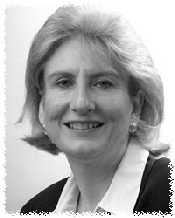Why should the secular media cover religion?

By Gayle White
The Atlanta Journal-Constitution*
Why should the secular media cover politics? Or science? Or sports? Because they are part of human life and contribute to the order of society.
Often, religion provides the “why” in the equation of a story. Faith motivates people, groups and, at times, nations. Religion plays a significant role in world events from war in the Middle East to tension in Northern Ireland to terrorism in the United States.
It also gives impetus to acts of heroism and massive humanitarian efforts. When there’s an earthquake or a volcanic eruption or a hurricane, volunteers from religious groups are often among the first on the scene to offer care and relief. Missionaries risk their lives and freedom to go into alien territories.
In politics, religious beliefs can determine how people cast their votes. Lobbyists from various religious points of view attempt to influence the way government works. And sometimes, from the halls of the statehouse to the Oval Office, elected officials who govern the country are governed themselves by their faith.
Schoolrooms and courtrooms, all the way to the Supreme Court, have in recent years been the battlefield for an increasing number of skirmishes over where the right to practice religion ends and the imposition of dogma begins.
Religion inspires art and entertainment from the great painters and composers of the ages to self-taught folk artists and gospel singers. It also inspires concern about the nature of entertainment, sparking protests and complaints about the content of films, television programs and books.
The many forms of faith are evidence of the increasingly diverse nature of American society. Religious rituals from around the world enrich the larger culture.
Of course, religion also functions at the most intimate personal level. People decide the most critical beginning-of- and end-of-life issues based on what they believe. Abortions, euthanasia, artificial contraception, in vitro fertilization-all are argued in terms of a force greater than humankind. People forced to make excruciating decisions- whether to end a pregnancy, whether to remove life support- often turn to their faith.
Decades ago, covering religion might have meant writing about sermons and dinners-on-the-grounds for the “church page.” Today, religion fits into every section of the paper. For instance: an article on the boom in Christian retailing for the business section; parish nurses for the health page; prayer at football games for sports; the increasing variety of kosher products for food; Islamic head coverings for fashion.
Many newspapers today are taking an even broader approach, combining religion with “ethics” or “values” in their coverage. This opens the door for stories about the importance of friendship or responsible investing.
Statistically, polls show most Americans believe in a higher power, consider religion important and identify with a religious group. These same Americans make up the reading, viewing and listening audience.
Not to cover religion is to ignore a significant part of life.
It is the reporter’s job to present reality, “without fear or favor” and regardless of the consequences. But in doing so, honestly and realistically, sometimes the press can advance understanding and even respect between groups. That can’t be a bad result.
And if the occasional religious charlatan is exposed, that’s not a bad result either.
*This article was written in 2001, at the time Gayle White was writing for the Atlanta Journal-Constitution. White is now a freelancer.
